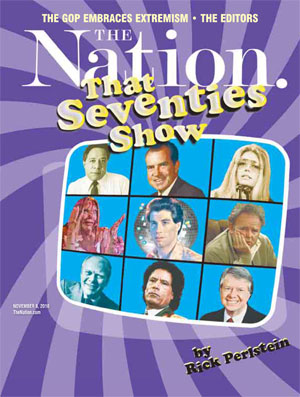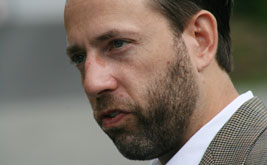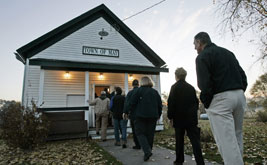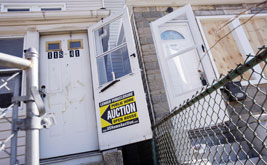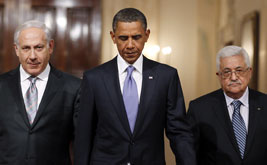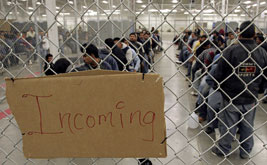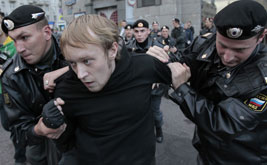Peter Dreier's "The Fifty Most Influential Progressives of the Twentieth Century" [Oct. 4] drew a tremendous response. We received close to 1,000 nominations from readers, naming their favorites who hadn't made the cut. Howard Zinn, Noam Chomsky and Dorothy Day were top picks; other choices may surprise you. Read the full "Nation Readers' Top Ten List," which Dreier has annotated with profiles highlighting their invaluable contributions, at thenation.com/community. Help us start a new list for the twenty-first century.
Holliston, Mass.
As a history teacher, I found Peter Dreier's list fabulous! So many radical men and women made a more democratic America. They showed "true grit," love of our country and their belief in economic and social justice. All were considered radical or dangerous in their day, and yet we easily accept their views now. A great list.
TINA LEARDI
Newton, Mass.
I scanned your pages for the name of Howard Zinn and was astonished that it was not included. His People's History brought new insights to countless students and workers; he was a civil rights and antiwar activist; his "war is never justified" message still resonates; he was an ally of the Berrigans, Daniel Ellsberg, workers, organizers and prisoners. I imagined his response: such lists are foolish and, worse, a distraction. The Nation's descent to a "top ten" list may be au courant, but it's discouraging.
JIM MILLER
Ludlow, Mass.
Your list was a great learning experience. There were many names I was not aware of and enjoyed finding out about. As an educator, I found it rewarding: there are so many true heroes for students to learn about. One person I think warrants consideration is Howard Zinn, a man who changed how we teach history: hero worship is out; everyday people are in.
KEVIN M. BROWN
Royal Oak, Mich.
You made glancing references to Howard Zinn and Studs Terkel but left them off your list. You may have thought them not influential enough, but the FBI felt otherwise. I propose a rule of thumb here: anybody rated high on the FBI list should probably show up on your list. They've more than paid their dues. That having been said, your list is very, very good.
CATHERINE SHEAP
San Francisco
Your list would have neared perfection with the remarkable Fannie Lou Hamer (1917–77) on it. As a female African-American sharecropper in the most brutally Jim Crow state, Mississippi, she faced obstacles arguably greater than all on your list. In addition to her courageous voting rights activism, Hamer served notably in the women's rights, economic justice and antiwar movements. Her many achievements were accomplished in a short lifetime and despite suffering disabilities from a 1963 beating by Mississippi police.
HOWARD WILLIAMS
New York City
Leaving Noam Chomsky off the list is analogous to leaving Michael Jordan off a list of The Fifty Best Basketball Players of the Century. No human being has contributed more to progressive discourse, or fought more for human rights here and around the world, than Chomsky.
DAVID SCOTT MAYNARD
Atlanta
Imagine my dismay when I found that what purported to be a serious consideration of twentieth-century activists rendered black women nearly invisible. Am I to believe that Dorothy Height, Fannie Lou Hamer, Coretta Scott King, Rosa Parks, Johnnetta Cole and Bernice Johnson Reagon are not any part of this discussion?
MARK A. SANDERS
New York City
Two people I think you left out are Grace Paley and Eve Ensler. Paley was an activist and author who fought tirelessly for progressive causes all her life. Wherever there was a demonstration for peace and justice, Grace was there! Eve Ensler, author of The Vagina Monologues, has devoted her life to stopping violence, envisioning a world where women and girls are free to thrive rather than merely survive.
EVELYN TRIANTAFILLOU
Pittsburgh
I have some reservations about Margaret Sanger. Everything you say is true—she was the most important proponent of the birth control movement, which indeed helped liberate women—but her push for birth control was in part informed by her belief in eugenics. This makes the label "progressive" somewhat dubious.
MARK COLVIN
Portland, Me.
Apart from Martin Luther King Jr. and Bill Moyers, The Nation appears blind to progressives in the faith community. Michael Harrington, who left the Catholic Church, is deserving, but his mentor, Dorothy Day, is more so. She mothered the Catholic pacifism that bloomed in the protests, initiated by the Berrigan brothers, that marked the beginning of the end of the Vietnam War and generated the US Catholic bishops' 1983 pastoral. She celebrated the dignity of poverty, which spawned hundreds of Catholic Worker houses, and her jaundiced view of capitalism foreshadowed and influenced the 1986 bishops' pastoral.
WILLIAM H. SLAVICK
Polson, Mont.
I'm disappointed that you neglected to place Myles Horton on the list. And if you don't know who Myles was, shame on you!
PETER DANIELS
Stowe, Ohio
The omission of Walter Francis White is a serious error. He transformed the NAACP into the world's most important civil rights organization, advised the American UN delegation and worked tirelessly for people of color all over the world. Fifty? He belongs on anyone's top ten.
ROBERT L. ZANGRANDO
Sandisfield, Mass.
Where is Jim Farmer, founder of the civil rights movement? First sit-in at a segregated Chicago restaurant in 1942 (MLK was 13). Founded CORE that same year. And that's not the half of it.
VAL COLEMAN
You should include Susan B. Anthony and Elizabeth Cady Stanton, as the most influential early suffragists, and Alice Paul and Lucy Burns, as the leaders of that movement when women finally got the vote.
DENISE DI STEPHAN
New York City
Leonard Bernstein threw parties that raised the consciousness and conscience of people not known to be progressive. Smeared by Tom Wolfe as "radical chic," his efforts delivered millions of dollars to civil rights, antiwar and other causes.
MANFRED KIRCHHEIMER
Los Angeles
Congratulations on a wonderful article. I would have included Carey McWilliams—but that's me.
EMIL REISMAN Read More
Our Readers
